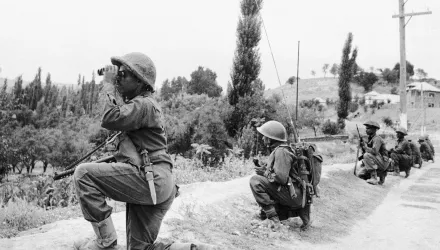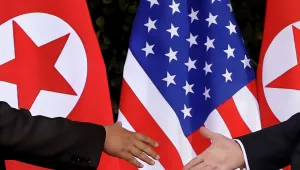Abstract
The recent crisis in Abkhazia reveals a fundamental qualitative change in the conflict in which the balance among three main actors is shifting, and increasingly the conflict plays a more important role in the triangular relations between Georgia, Russia and the West. The search for a new equilibrium in the conflict, one that would be an optimal outcome for the actors involved, will require rethinking the mutually constitutive roles (identities) and interests they want to assume with respect to the conflict and the entire South Caucasus. This is argued to be a matter of the 'first order' with respect to conflict resolution in Abkhazia, with confidence-building measures and political status questions representing only a 'second order'. For Tbilisi and Sukhumi, such a process may involve resigning the discourse of sovereignty; for Russia, pondering the costs and benefits of the current 'hard power' approach; and for Western actors, delimiting their interests towards the region and recognizing the power they possess vis-a-vis Russia's current weakness.
The Present Crisis: Overview
"A cursory review of the events that caused an intensification of hostile relations between the major actors involved in the Abkhaz conflict is presented prior to their analysis. The key events in this development have been the declaration of independence by Kosovo on February 17, 2008 and its international ramifications, Russia’s decision to suspend sanctions against the Abkhaz Republic imposed by the Commonwealth of Independent States (CIS) and the establishment of formal relations between Russia and the Abkhaz ‘Republic’, reinforcements of the formally CIS peacekeeping mission in Abkhazia, and escalation of the military tension between the Abkhaz ‘Republic’ and Georgia.
Russia declared not to abide by the sanctions imposed on Sukhumi in 1996 by CIS Heads of State which forbid economic and military cooperation and establishment of formal relations with the de facto government, on March 6, following the Russia’s presidential election in which Dmitri Medvedev received ca. 90% of votes by participating citizens of the separatist republics with Russian passports. (The decision, which to great extent represented only a formal confirmation of the status quo, paralleled — and possibly halted — Tbilisi’s overtures to ease the trade blockade of Abkhazia.) The next day, both de facto governments (in Abkhazia and South Ossetia) pleaded to the Russian Duma to recognize their independence in view of the 'Kosovo precedent'...."
Ondrej Ditrych is a Ph.D. candidate in international relations at Institute of Political Studies at Charles University in Prague. This article was written during his Fulbright research fellowship at Belfer Center for Science and International Affairs, Harvard University.
Ditrych, Ondrej. “Identities, Interests and the Resolution of the Abkhaz Conflict.” Caucasian Review of International Affairs, Summer 2008
The full text of this publication is available via Caucasian Review of International Affairs.




